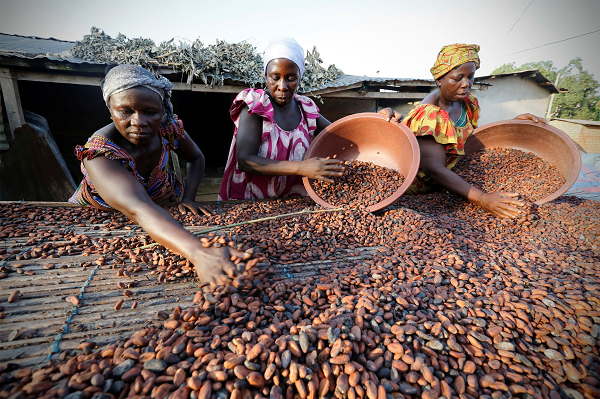Cocoa Abrabopa Association (CAA), Alfred Ritter GmbH & Co KG, Fuchs & Hoffmann, and Ascot have collaborated to set up an economically viable and resilient cocoa production system to help improve the lives of cocoa farmers and their households.
The 3-year sustainability project seeks to target about 526 members and their households and this would be implemented in Daboase, Aboso, and Bogoso in the Western Region of Ghana.
The collaboration was launched virtually and conveyed representatives from each organization.
The main components of the joint program include Training members and field staff with the innovative Farmer Business Schools (FBS) approach; The implementation of an integrated and supportive Child Labour Monitoring and Remediation System (CLMRS); Boosting the household income from cocoa and other agricultural products and enhanced shade trees seedling planting and monitoring program.
The reps explained that the Farmer Business Schools (FBS) pieces of training would build the capacity of the members and their spouses in order to take advantage of the skills and knowledge to improve their incomes and food supplies.
CAA staff would be trained externally to strengthen the service delivery, refreshed knowledge, and skills which go beyond the technical content.
“With regards to the CLMRS component, existing child labour cases and families at risk of child labour and school attendance will be identified, child labour risk assessment which consists of household surveys, community profiling, and awareness-raising will be done at the start of the program.
Data gathered in the first year will be used to develop the model further for subsequent years with a remediation plan and members categorized into a low and high risk to child labour.
This should lead to an increased percentage of children of CAA members and their sharecroppers attending school over a period of 3 years” the reps said.
They further explained that the Living Income component is split into 2 elements where a study would be carried out to identify the status quo, develop targeted activities and measure the progress towards a living income.
“The project would establish a household income baseline for the targeted member households and provide suggestions for cost-effective monitoring of the household income in the following years.
The study would also provide recommendations on improving the household income which includes from cocoa farming and other agriculture-based livelihoods particularly for women” they mentioned.








